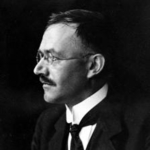Het protestantisme en de Tweede Wereldoorlog. De casus Nederland en de casus Frankrijk
DOI:
https://doi.org/10.18352/bmgn-lchr.6137Keywords:
Protestantism, World War IIAbstract
Protestantism and World War II. The Dutch case and the French case
This paper on the Protestant churches of France and the Netherlands during the Second World War is the preliminary result of a research project on religion in Europe in the 1940s. The project is part of a larger European Science Foundation programme on The Impact of National Socialist and Fascist Occupations in Europe (INSFO). Three main themes are discussed. The first looks at the institutional relations between the Churches and the new regimes in 1940: the Nazi regime in occupied Holland and the government of Vichy France.
The second covers the confrontation between theology and the National Socialist ideology, looking at the influence of the radical theology of Karl Barth on the younger generation of ministers in both countries in particular. The third theme explores the types of resistance that resulted from Protestant ideologies, such as the duty to help refugees based on historical arguments. In this respect, special attention is given to Lutheranism in the Alsace under the German Reich, and to the effect of a particularly pious brand of Dutch Calvinism on its followers’ attitudes to resistance and suffering.
This article is part of the special issue 'Godsdienst in Nederland'.
Downloads

Downloads
Published
Issue
Section
License
Authors who publish with this journal agree to the following terms:
a) Authors retain copyright and grant the journal right of first publication with the work simultaneously licensed under a Creative Commons Attribution 4.0 International (CC BY 4.0) that allows others to share the work with an acknowledgement of the work's authorship and initial publication in this journal.
b) Authors are able to enter into separate, additional contractual arrangements for the non-exclusive distribution of the journal's published version of the work (e.g., post it to an institutional repository or publish it in a book), with an acknowledgement of its initial publication in this journal.
c) Authors are permitted to post their work online (e.g., in institutional repositories or on their website) prior to and during the submission process.
Authors are explicitly encouraged to deposit their published article in their institutional repository.








